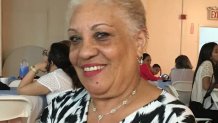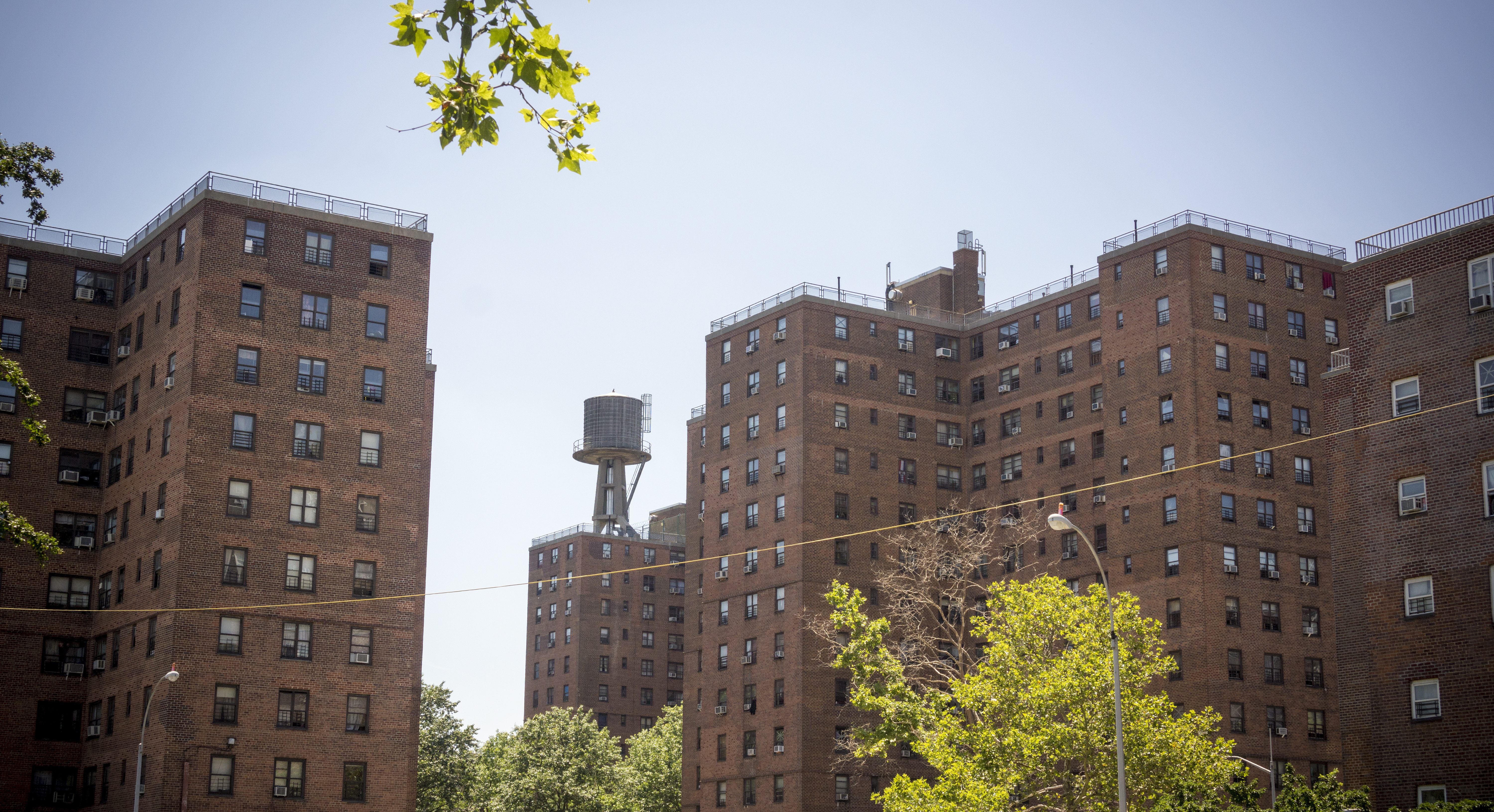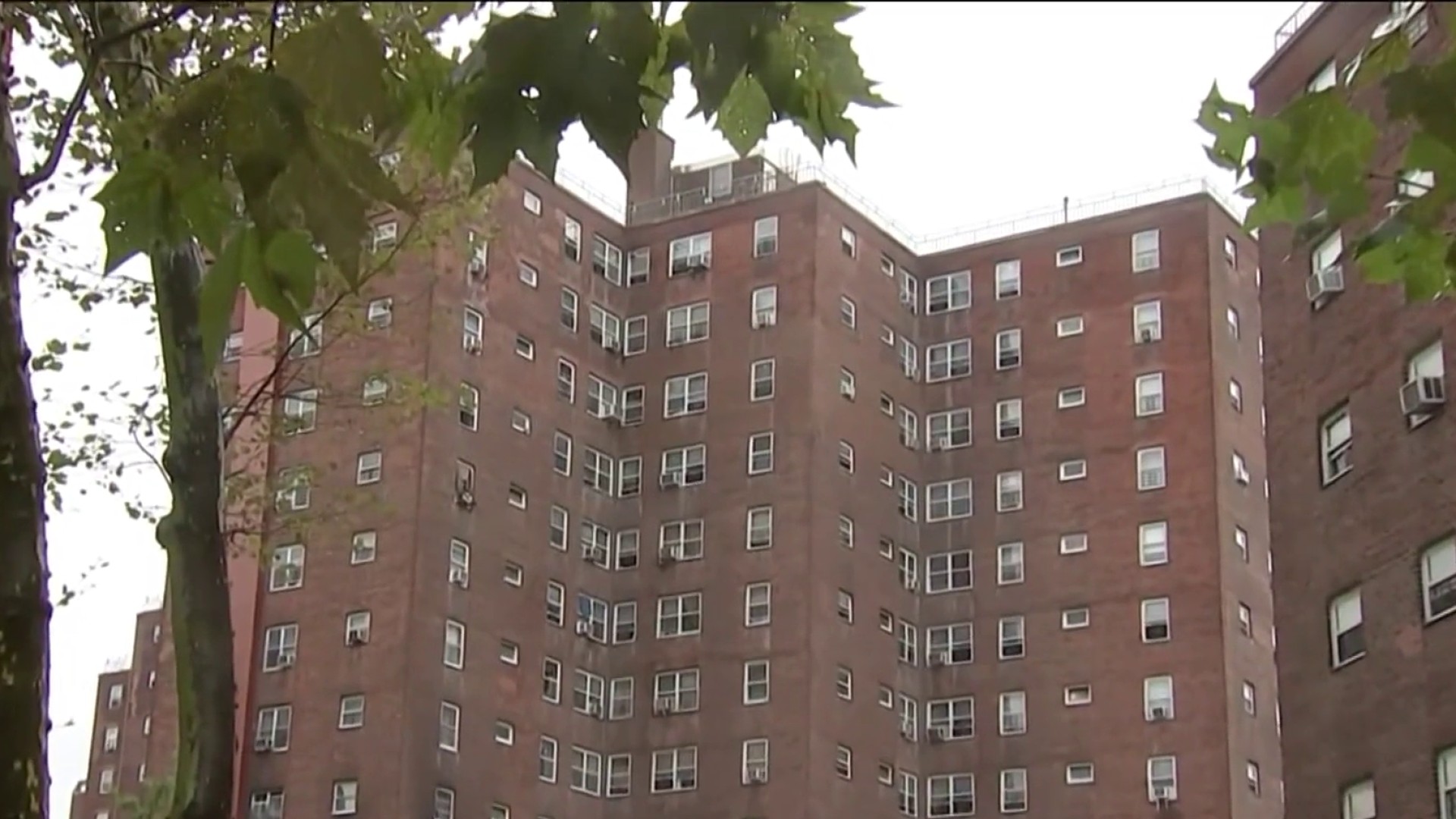This article was originally published on Jan 4 at 5am EST by THE CITY
Two days before Josefa Bonet died on Oct. 1, she asked her doctor for an unusual test, to see if she had arsenic in her blood.
Bonet was living at Jacob Riis Houses in Manhattan’s Lower East Side. Just a month earlier, the New York City Housing Authority (NYCHA) revealed that lab tests had found arsenic in the water at her development — only to reverse course and claim there was no arsenic.
Her family, mourning Bonet’s death, thought they had put the whole arsenic debacle behind them. Then came the letter from Bonet’s physician at Mount Sinai Hospital, Dr. Joshua Rein.
Get Tri-state area news and weather forecasts to your inbox. Sign up for NBC New York newsletters.
Rein revealed that Bonet, 74, had been diagnosed with kidney disease. Her survivors were stunned to read what came next: The tests revealed a level of arsenic in her urine of 30 micrograms per liter (mcg/l) — four times the upper limit of normal.
“When this letter came to me, I was shocked,” Bonet’s son, Manny Soto, 54, told THE CITY. “Arsenic, maybe it didn’t kill her — but it may have played a part. You’re 74 years old. The arsenic makes it worse. It doesn’t help.”
That, in fact, was also the opinion of Rein, who wrote to the city and state health commissioners spelling out his concerns about the confluence of the arsenic test results at Riis Houses and Bonet’s test results.
In his Oct. 19 letter to state Health Commissioner Dr. Mary Bassett and city Health Commissioner Dr. Ashwin Vasan, Rein noted that while Bonet’s arsenic level had not reached the “overt toxicity” level of 50 mcg/L that triggers a state notification, it was still well above the norm.
“This value is abnormal and chronic low-grade toxicity cannot be excluded,” Rein wrote. “She was admitted to the hospital on Sept. 29th and passed away Oct. 1. It is possible that arsenic may have played a role in her death.”

What came next gave Bonet’s family a second shock.
Rein offered to provide both of the top health officials with Bonet’s medical records and her family’s contact information. But neither Bassett nor Vasan requested the records or reached out to Soto or any of his sisters.
“Nobody is interested,” Soto said. “I don’t know. It’s unreal. We’re still in shock. Holidays are here. We’re still in shock. No doors are opening for me and my sisters.”
In his letter, Rein suggested to the two high-level government health officials that they use the resources at their command to expand testing of residents at Riis Houses and other public housing developments, noting that routine testing for arsenic is not often performed.
“Since 24-hour urine collections to evaluate arsenic levels are rarely done, the prevalence of chronic low-level arsenic toxicity is likely underestimated,” Rein wrote. “Out of concern for the well-being of everyone who lives in that housing complex and potentially other housing complexes, I implore both of you to utilize the power of your respective Departments to investigate this public health problem.”
Bassett did not respond at all. According to health department spokesperson Cadence Acquaviva, the commissioner relied on the city to handle this issue because they were “the lead agency with oversight and medical expertise” on the Riis arsenic situation.
Vasan did respond, but not for nearly another month. When he answered, on Nov. 10, the city health commissioner dismissed Rein’s concerns out of hand, according to the letter obtained by THE CITY.
In his letter, Vasan recounted the events that lead to the arsenic scare at Riis, which unfolded on the eve of Labor Day weekend and continued for a week.
In August, NYCHA management had been trying to figure out what was triggering a wave of tenant complaints about cloudy, smelly water. It ordered a contractor to test the water in one of the development’s 17 buildings, where many of the complaints were concentrated.
An Aug. 26 test in one apartment recorded a high level of arsenic, so NYCHA ordered more tests. Over the next eight days, NYCHA managers learned that six more random tests in two buildings also detected elevated arsenic levels in the water.
On Friday, Sept. 2, on the cusp of Labor Day weekend, NYCHA confirmed to THE CITY the test results and then notified residents and the public about what the test results showed. City health officials advised Riis residents not to drink or cook with the water until more tests could be performed.
Eight days later, on Sept. 9, NYCHA suddenly announced that the initial results were wrong and that there was no arsenic in the water. The abrupt turnaround enraged tenants and prompted a probe by the city Department of Investigation and the federal monitor who oversees NYCHA. That investigation is still underway.
More Coverage
'Lab Error'
In his response to Rein’s Oct. 19 letter, Vasan dismissed the doctor’s request for broader testing of residents.
“Because the original report of arsenic elevation was a lab error, longstanding, robust testing of NYC drinking water shows it is not considered a source of arsenic exposure and that additional testing at Riis Houses confirms that arsenic in water is not a concern,” the commissioner wrote, “we do not think that further water testing for arsenic is warranted for Jacob Riis Houses or other buildings.”
Regarding Rein’s concerns about the source of an elevated level of arsenic in Bonet’s urine, Vasan theorized that it was caused by her diet.
The commissioner noted that the state tracks patients who register elevated arsenic levels in a “heavy metal registry” that also tracks lead, mercury and cadmium, and that the city Department of Health & Mental Hygiene “interviews NYC residents with very high arsenic levels.”

“We can report that it is not unusual to find people who have recently eaten foods that can be higher in arsenic such as rice, shellfish, seaweed, fish and fruit juices, have elevated total urine arsenic levels,” Vasan wrote.
But DOHMH appears to interview only a fraction of the New York City residents whose elevated arsenic levels are recorded by the state heavy metal registry, THE CITY found.
Between 2016 and 2020, there were 382 “unique adults” who registered arsenic levels above 50 mcg/L in New York City. That’s an average of 76 per year. DOHMH didn’t begin this interview protocol until 2020, and talked to only eight individuals with elevated arsenic levels in 2020, paused the program in 2021 due to the pandemic, and then spoke with five in 2022 when the interviews resumed.
City health department spokesperson Patrick Gallahue said the department “attempts to contact individuals in the top 75th percentile to identify potential product-related sources of arsenic. Individuals are asked about potential sources of arsenic, such as consumption of rice, fish, and seaweed.”
City Councilmember Carlina Rivera (D-Manhattan), whose district includes Riis Houses, learned of Rein’s letter and requested a copy of Vasan’s response from the health department. Rivera told THE CITY she was extremely unhappy about Vasan’s decision to blow off Rein’s request for more testing — a request she and other elected officials had been making since the arsenic scandal erupted in early September.
“I just felt there was not enough concern there. They did not commit to further action,” she said. “This is the first time I saw something like that where there is medical documentation and a doctor from a local hospital is saying what they should be doing. The response from the Department of Health makes me question whether they’ve received other cases. To me the response was unacceptable.”
Bonet is remembered fondly by her former coworkers at the senior center in NYCHA’s Wald Houses, a development a few blocks south of Riis. For years she worked as a counselor at the center and was well known to the community there.
The staff at the center created a memorial display featuring photo portraits of Bonet smiling and full of life, with a tribute written in both Spanish and English:
“Never Forgotten. Always Loved and Missed. May the Angels guide you on your new path. May God bless you and embrace you in the heavens above.”
THE CITY is an independent, nonprofit news outlet dedicated to hard-hitting reporting that serves the people of New York.



